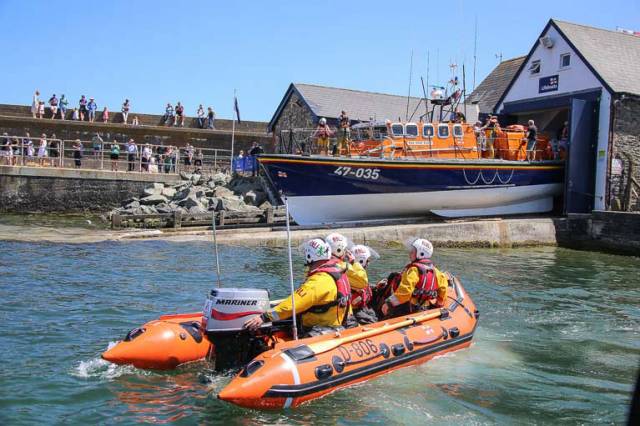The RNLI is deeply grateful and humbled by the generosity of Mrs Elizabeth O’Kelly to bequeath over €6 million in her will to the charity. Gifts in wills, be they large or small, are vital to the charity’s work in saving lives at sea, they fund six out of every 10 lifeboat launches.
Mrs O’Kelly who prior to her passing, lived in Stradbally County Laois, was a long-standing supporter of the RNLI. She held a high regard for the volunteer work carried out by the charity which appealed to her ethos and she herself for many years, volunteered her time to help out at an RNLI stall at the RDS in Dublin.
Throughout her life, she displayed great kindness towards her many friends and was most charitable in supporting those in need. This has been reflected in her generous decision to bequest the funds to five charities.
Mrs O’Kelly asked that her legacy be used to support the RNLI’s lifesaving work in Ireland. The impact of her incredible generosity will be directly felt by our volunteer crews and the people whose lives they save for many years to come. As this is such a large legacy, the RNLI will be carefully considering all options to ensure the funds are used where they are needed most and with a view to how they can be spent to fittingly reflect Mrs O’Kelly’s support for the charity.
The RNLI provides a 24-hour search and rescue service and has 46 lifeboats stations in Ireland and 59 lifeboats. In 2017, Irish lifeboats launched 1,088 times and our volunteer crews rescued 1,471 people, that’s an average of four people aided each day.
As a charity, we rely on the generosity of the public to fund our lifesaving service and to ensure our lifeboat stations are properly equipped, our lifeboats are maintained and that our volunteers are highly trained and skilled to continue their work in saving lives at sea.































































